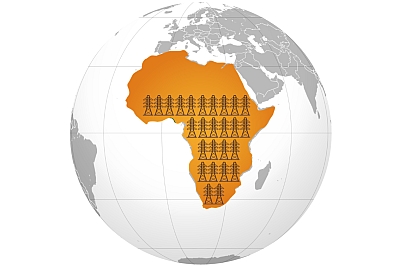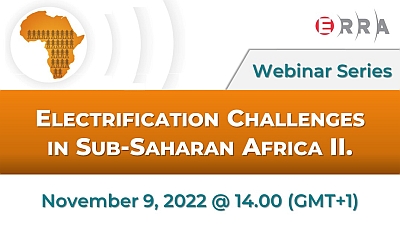

The webinar on November 9, 2022 built upon the previous broadcast which analysed the status quo and ways forward for the fundamental development of electricity access in Sub-Saharan regions. This time however, the focus shifted more towards the financial, development and regulatory side of mini-grids.
Electricity mini-grids are increasingly becoming a key component of countries’ electrification plans, and their development requires appropriate regulatory frameworks. However, the market for mini-grids, and mini-grid financing in particular, is still very new. It is critical for regulators to understand how these markets are developing when designing regulations, including the allowance for the recovery of financing costs in tariff determinations, and not to simply adopt practices from other electricity systems
Setting cost of capital benchmarks that the market is unable to support will discourage investors and developers and hinder the achievement of electrification targets. Some key challenges of cost of capital determination that should be addressed are the market-based capital structures of mini-grids, determining the costs of each of the components of the capital structure, addressing gearing that changes during a tariff control period, identifying who should bear currency risk, and assessing whether the traditional cost of capital approach is the most appropriate approach for such a new market. Regulators should also consider how different mini-grid procurement approaches (eg, large-scale concessions) may generate different financing options and alter the determination of cost benchmarks.
The webinar was developed in partnership with:

Webinar Recording
If you are interested only in a particular session,
click to watch on YouTube, expand the video’s description and jump directly to it by clicking the timeline links.
Webinar Presentations
- Mr. Andrew Tipping, Introduction to the webinar and the topic
- Mr. Tom George, Minigrid Regulatory Strategies-A Private Sector Perspective
- Mr. Samuel S. Bunnya, Regulatory considerations on allowance for the recovery of financing costs
- Mr. Benjamin Curnier, Structuring finance for GMGs
- Mr. Chris Kanani, Mini-grid procurement approaches; generation of different financing options and determination of cost benchmarks
Related Materials
- Benchmarking Africa’s Minigrids Report 2022, Africa MiniGrid Developers Association, 2022
- World Energy Outlook 2021, International Energy Agency (IEA), December 2021
- Sustainable Development Goal 7 (SDG7) initiative of the IEA, IRENA, UN, WB & WHO including inter alia data on access to electricity:
- Electricity Regulatory Index for Africa 2020, African Development Bank Group
- Electricity Regulatory Index for Africa 2021, African Development Bank Group
- Attracting Private Participation and Financing in the Power Sector in Sub-Saharan Africa : Findings from a Survey of Investors and Financiers
- Check also more information and the recording of the first edition of the webinar here

